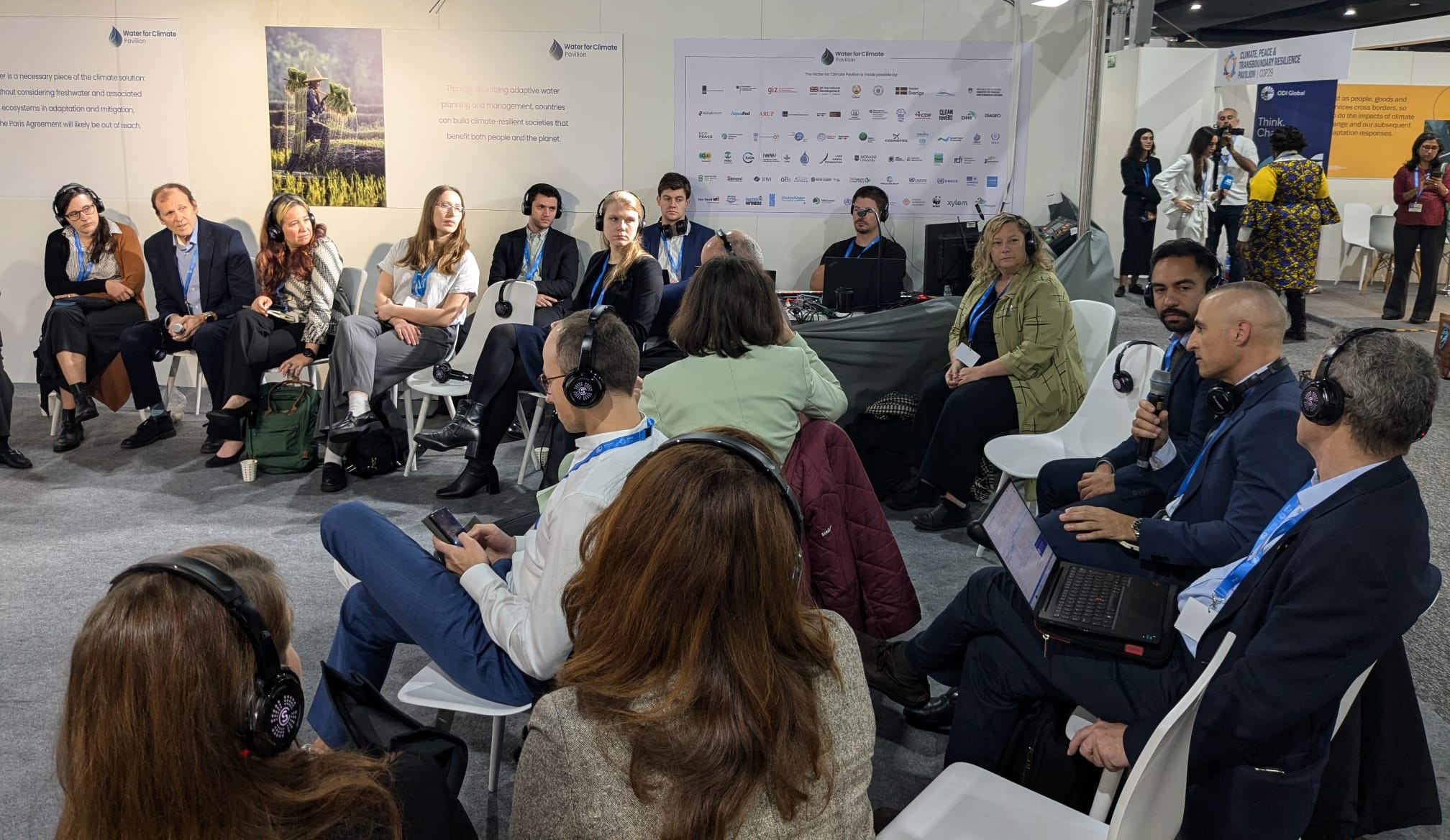
The 2026 United Nations Water Conference is already drawing high expectations as water experts convened at the COP29 Water for Climate Pavilion for an informal consultation in preparation for the event.
Co-hosted by Senegal and the United Arab Emirates, the upcoming conference, scheduled for December 2026 in Dubai, is seen as a pivotal opportunity to not only address immediate water challenges, but also to define a long-term vision for issues like governance and financing.
At the informal consultation, led by Shaima Gargash, Director of Energy and Sustainability at the UAE Ministry of Foreign Affairs, participants described the 2023 conference – the first in 50 years – as “historic” and an “important first step.” Others, however, called it “vague” and “underwhelming,” expressing frustration over the political quagmire that has hampered global progress on water.
For many participants, the 2026 conference’s success will hinge on its ability to deliver tangible results.
Water governance has long struggled to find a clear home within the international system, including across the UN. This fragmentation, participants said, has made it difficult to elevate water as a global priority. In 2024, the UN launched a system-wide strategy as a result of the 2023 Conference recommendations, but water is still spread out across the mandates of multiple UN agencies.
Jose Gesti, Water for Climate Pavilion Envoy on the Global Goal on Adaptation, called on the conference organizers to hold the “unpleasant conversations,” particularly around improving sector governance.
“The governance of water is so scattered across UN agencies that no one can understand what the rationale is,” he said.
Other participants echoed Gesti’s concerns. A representative from the German Ministry of Water, added that water is ¨scattered¨and often treated as “everywhere and nowhere at the same time.”
If governance is one challenge, financing is another. “What does the number 1.5 mean?” asked Gary White, CEO of Water.org, evoking the well-known temperature target of the Paris Agreement. “US $1.5 trillion is what it takes to solve the global water crisis. I think we need to define a new 1.5 [target] in the context of water. That is the choke point.”
White painted a stark picture of the limitations of current funding models. Public sector financing, he argued, is insufficient, and multilateral institutions are struggling to contribute more capital. “We know that the private capital markets are where the money is,” he said.
To unlock this potential, White called for a shift in the narrative around water infrastructure projects, emphasizing their “bankability.” He pointed to the growing interest among investors in climate adaptation and resilience projects, urging stakeholders to position water projects as part of this broader agenda.
“What I would like to see at the next [UN Water] Conference is an invitation to the sovereign wealth funds, institutional investors, to say, ‘Look, we have the ability to take your capital and provide a financial return because so much value is created when people get access to water.’”
Sonja Koeppel, Secretary of the Water Convention, suggested that matchmaking sessions could help align commitments under the Water Action Agenda with available climate finance. “It’s important to move from planning to financing and implementation,” she said.
Participants also noted the importance of taking water goals into the broader conversations and policy decisions around health, climate, and the economy.
“How do we get the health people into the discussion? How do we get the climate people on board? There’s a Pact for the Future that is going to shape the post-2030 agenda. How do we create a dialogue and a narrative that will influence those discussions?” said Maggie White, Senior Manager of International Policy at the Stockholm International Water Institute.
Koeppel noted that water has mostly been left out of the negotiation rooms at COP29, with the exception of the Global Goal on Adaptation. It has also been given low priority in the discussions at other key UN events like the Convention on Biodiversity and the United Nations Convention to Combat Desertification.
“In order to really make an impact, we need to really engage with [negotiators] and try to find the right entry points, such as adaptation or mitigation,” she said.
As co-hosts Senegal and the UAE prepare for the 2026 UN Water Conference, participants stressed that bold political leadership will be essential to ensure the event delivers meaningful outcomes. Without direct engagement and commitment from heads of state and senior officials, water and sanitation will continue to be sidelined.
Dianna Kopansky, Head of Freshwater and Wetlands at the United Nations Environment Programme (UNEP), stressed the urgency of action. “We’ve got 2030, we’ve got 2050, we’ve got the [Sustainable Development Goals]…What we have to talk about is not planning for the next and the next, but doing now.”